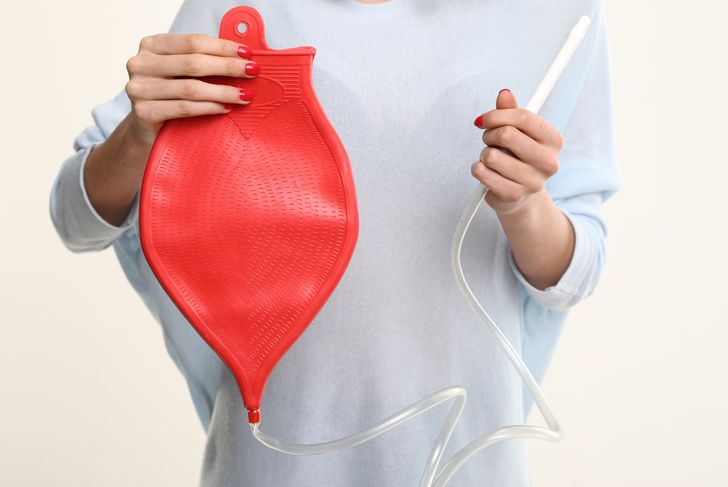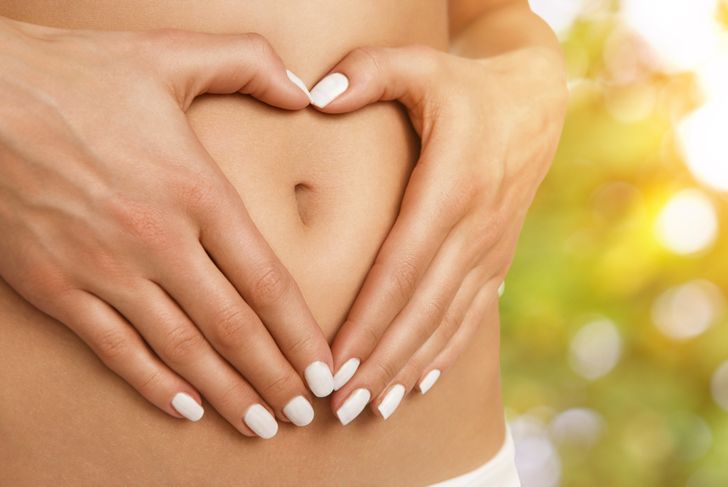Colonics, also called colon irrigation or colon hydrotherapy, is the practice of flushing out the colon, or the large intestine, by infusing water into it through the rectum. Colonics are only done by a certified colon therapist. Think of them as a glorified enema. It is used to treat digestive issues—most commonly constipation. These are the things you should know about colonics before deciding if it’s right for you.
Why do people get colonics?
Colon therapists claim that it is important for getting rid of trapped fecal matter and toxins that are sitting around in your gut. As waste builds up, toxins sit around in your system, slowly poisoning you, causing symptoms like fatigue, constipation, and autointoxication. Conventional medical doctors often do not believe in the benefits of colonics because there isn’t scientific research backing up the claim that colonics remove toxic waste from the body.
How can I prepare for my colon hydrotherapy session?
A few days before your session, start drinking plenty of water. Eat foods high in fiber—lots of vegetables and whole grains. Refrain from eating at least 2 hours before your colonics appointment.
Does it hurt?
The insertion of the speculum into the rectum does not usually cause discomfort or pain. When the filtered water enters the colon, it stimulates peristalsis—contraction of the muscle in a wave-like motion—which may cause you to feel slight cramping, like you are about to move your bowels. This is normal—and it is usually not painful—although in cases of severe constipation or gas it may cause discomfort and cramping as the colon is cleaned out.
How will colonics affect the colon?
First, the warm, filtered water will stimulate peristalsis in the colon to get out all the fecal matter. As the water cleans out the colon, it will break down the toxic material sitting around in the colon, preventing it from entering the bloodstream and causing harm to the body. Colonics also exercise the colon muscles. When toxic material builds up inside the colon, it impairs the function of the colon muscles. Once all the harmful waste matter is gone, the colon can start to function normally again.
What is the difference between colonics and an enema?
Your colon is 5 feet, or 1.5m long. When you use an enema to flush out the colon, it only reaches the last foot, leaving 4 feet of your colon with fecal matter and toxic waste material. Colonics are a long session in which water is constantly moving in and out of the colon, getting into every crevice and fold, and cleansing out the impacted fecal matter.
How long is a session?
A colonics session lasts 45-60 minutes. In this session, approximately 15 gallons of water are used to flush out the colon. The colon therapist may also use massage techniques and pressure points to loosen any trapped stool further.
Is one session enough?
A colon therapist will tell you that one session is not enough to clean out all the toxins that have been sitting around in your gut for a long time. When a person enters a second and third session of colonics, they are aware of the process and are usually less tense. This allows them to relax the abdominal muscles, making a fluid path for the colonics’ water.
Should I be doing anything differently after getting colonics?
Eat plenty of vegetables and whole grains, and avoid overeating protein and dairy. Drink plenty of water. Your colon therapist will probably recommend taking probiotic supplements for a few weeks following the session because the cleanse removes the ‘good’ gut bacteria along with the bad.
Are there certain people who shouldn’t get colonics?
Yes. People with certain gastrointestinal conditions such as diverticulosis, ulcerative colitis, Crohn’s disease, gastrointestinal cancer, or those who have recently had colon surgery. Also, people with hemorrhoids, congestive heart failure, or an abdominal hernia should refrain from doing colonics. Pregnant women are not recommended to do colonics, as the process may stimulate uterine contractions.
Are there any side effects?
Some people may feel nauseated or fatigued after a colonic session—this usually goes away within a few hours. You may experience ‘constipation,’ or a delay in bowel movements immediately following a colon hydrotherapy session. A few days later you may have larger, easier-to-move stool. It is recommended to eat light, fiber-filled meals following a colonic session. Avoid eating a lot of heavy protein, such as meat, as it may cause constipation. Many colonics clients report an improvement in acne, allergies, and asthma following colonics sessions. Clients often feel ‘lighter’ and more energetic.
If you suffer from irregular bowel movements, or you feel ‘bogged down and heavy, you may want to give it a try. If you are considering it but have other medical conditions, talk to your doctor to ensure that colon hydrotherapy is safe for you.

 Home
Home Health
Health Diet & Nutrition
Diet & Nutrition Living Well
Living Well More
More




















